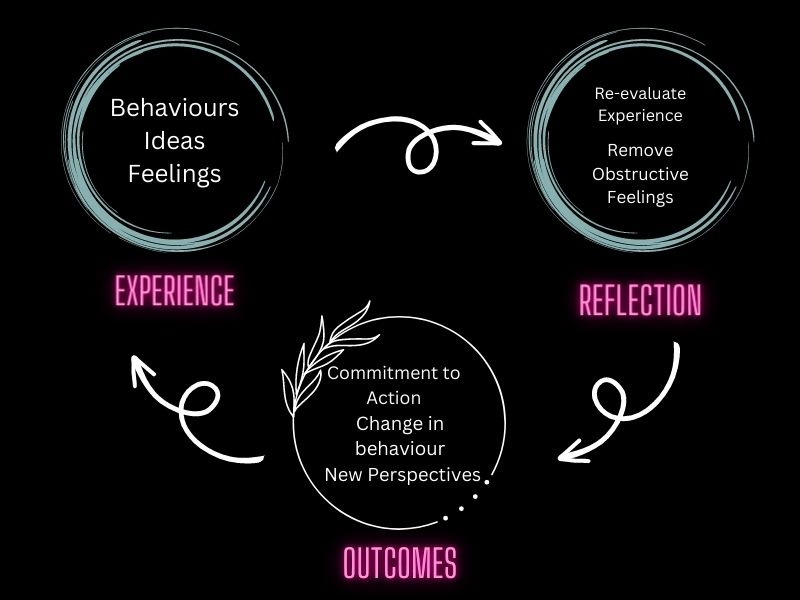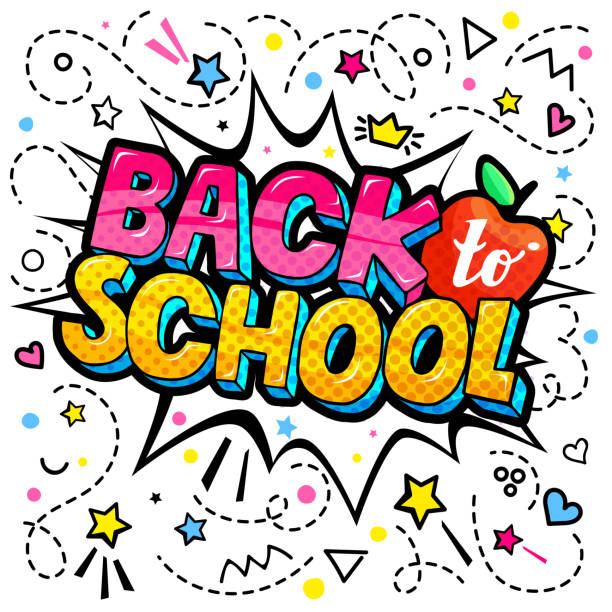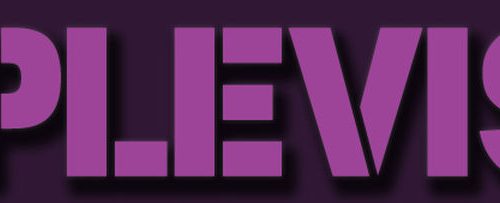Back to School
Since I was in school, I would always look up to my teachers, notice the way they taught, the way they handled the class, their practices towards children and admired their work. As it is said, “What the Teacher is, is more important than what he teaches”. Therefore, in my early years, I decided that I want to be a teacher and started working towards my goal. Over the years, I developed interest in English Literature and the thought of teaching it to children, excited me. I chose to do my undergraduate in English and kept taking small steps towards becoming a teacher. Now, as I step into the last year of my undergraduate degree in my University, I get to do my work placement as an assistant teacher in a primary school as a part of my module. This whole experience is very overwhelming for me and using Boud’s model of Reflection, this blog will reflect upon my learnings and experiences and the steps I took to acquire my work placement in Rosetta Primary School, Belfast.
“What the Teacher is, is more important than what he teaches”.
Karl meninger

Boud’s Model of Reflection provides insight into one’s own manner of learning and understanding based on the experience. “Experience consists of the total response of a person to a situation or event: what he or she thinks, feels, does and concludes at the time and immediately thereafter” (Boud, 1987: 18). Reflective analysis enables people to make connections between new experience and prior understanding, consider both intellectual and practical concepts, and apply particular tactics to novel problems.
Drafting CV and Applying for Work Placement:
Provided with a list of places where all the students could do their work placement, I was searching for the name of schools in it. I remember I was back home in India when I started working on my CV. My CV included my contact information, academics and the most important thing – my experience in teaching. Yes! I have had experience in teaching secondary school students but in an informal environment as I used to give them private tuitions after their school. Giving private tuitions to students boosted my confidence in teaching and made me understand the psychology of children. I was eager to fly to back to Belfast when I got a response from Mrs. Thelma Crawford, Principal of Rosetta Primary School on my CV, saying that she wanted to interview me. I flew back and met her, and I am glad that she was impressed with the CV and hired me as an Assistant Teacher.
Experience:
‘Back to School’ is the phrase I would use to describe the first day at my work placement as I saw walls decorated with students’ projects, children running everywhere on their break and heard the jabbering of the students in classroom. I met with main teacher, Mrs. Sarah Hall and was informed that I would be assisting three children from different ethnicities as they knew very little English and had problem catching up with the rest of the classroom.

I went into the classroom and was introduced to Lev, from Ukraine. Initially, he did not respond to me very well and was shy. The other two children were Mohammed who is Arabic and Evandro, Portuguese. Mohammed was similar to Lev, but Evandro was confident and eager to learn and hear what I had to say. The first day made me realize that the journey of my work placement with the children is not going to be an easy one but an enlightening and fun one.

The biggest challenge I faced with students was to make them feel confident and comfortable and get them out of their shell to talk. I learned that the best way to do that is to get to know the child, ask him some general questions and this worked for me, and they started responding to my questions! Thankfully we had a common friend, ‘Google Translator’ which made our lives easier therefore, I started having conversations with them about everything other than studies to make them feel comfortable with me. The experience in school made me adapt Reflective Teaching as my practice because it is the only way I find working on children who are all from different ethnicities. “Reflective Teaching implies an active concern with aims and consequences, as well as means and technical efficiency” (Pollard, 2000: 11). I started by picking one topic each time and revising it with them repeatedly until they grasped it which gave me a feeling of great satisfaction.
Reflection:
As per Boud’s model of Reflection, reflecting upon my work experience, I would point out the positive experiences and leave the negative ones aside. On my way back from interview, I was stunned and embracing the change I got to see because of the work placement opportunity; from being a student myself and meeting my principal to being in an interview with the principal, from running around in school corridors to watching students running around. The placement provides me with an opportunity to see and experience things from the other side of field.

It took me some time to make the children feel comfortable with me and there are some days when students are not in a good mood or don’t want to study, and these days irritate me too, but I keep that feeling aside and try even harder to interact with them. As Pluckrose (1979: 24) mentions, “by encouraging children to talk and express their feelings and thoughts, the teacher is using language to extend the children’s understanding of the world.’ It provides me great satisfaction even if they talk to me about their regular lives when they don’t want to study. Thus, I felt different kinds of feelings, from nostalgia to new experience, happiness to disappointment, irritability to satisfaction in my work placement.
Outcomes:
The experience has been a great learning for me. To quote Waide (2008: 37), “when you first take baby steps into the dreaded school for your placement, think of it as a mere work experience. You are not there to be a teacher; you are there to learn how to be a teacher.” Each teacher has their unique approach to inspire and interact with students and I would say that each day at my work placement is providing me opportunities to explore new ways of interacting with them.
“You are not there to be a teacher; you are there to learn how to be a teacher.”
Lucy Waide
A key factor in a student’s success in growth and development is motivation and as a result, it is crucial that I help them on their path to knowledge so that they can reach their greatest potential. I believe it is essential to give kids the freedom to express themselves and develop their own beliefs since they are our future. These factors reaffirmed my choice to pursue a career in teaching.
Bibliography
Boud, David, et al. Reflection, Turning Experience into Learning. Kogan Page, 1985. E-Book. https://ebookcentral.proquest.com/lib/qub/detail.action?docID=1461054
Pluckrose, Henry. Children in Their Primary Schools. Harper & Row, 1979. Print.
Pollard, Andrew. Reflective Teaching in the Primary School : A Handbook for the Classroom. 3rd ed., Cassell, 2000. Print.
Waide, Lucy. So You Want to Be a Teacher? : How to Launch Your Teaching Career. Continuum International Pub. Group, 2008. Print.
You May Also Like

Football: A Marketing Tug of War
25 November 2022
The Pen Is Mightier Than The Sword
24 November 2022
